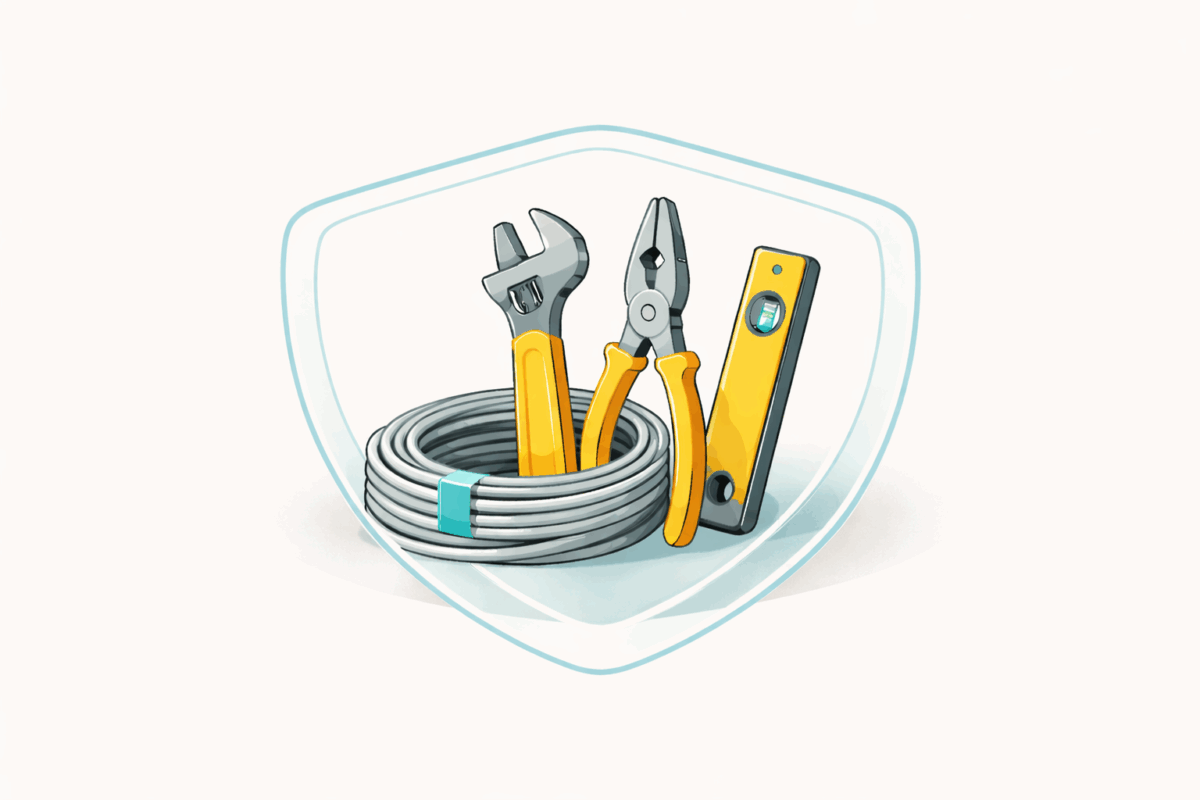Being bonded and insured means your business is financially protected and accountable if something goes wrong. For many customers, contractors, and partners, hiring a bonded and insured business is a baseline requirement, not a bonus. It signals trust, responsibility, and readiness to operate professionally.
For small business owners, understanding what bonded and insured actually means can help you with contracts, protect your finances, and avoid costly misunderstandings. Gild Insurance Agency helps businesses cut through the confusion with guidance and flexible business insurance built for how you work.
What “Bonded and Insured” Actually Means
A business is considered bonded and insured when it carries active insurance coverage and holds a surety bond. While the terms are often used together, they provide two different types of protection:
• Insurance covers claims, injuries, and property damage related to your business operations.
• Bonds provide a financial guarantee to clients if contractual or ethical obligations are not met.
Why Clients Look for Bonded and Insured Businesses
Clients look for bonded and insured businesses because it reduces their risk. Hiring a business that is bonded and insured reassures customers that they are protected financially if work is not completed properly or if an accident occurs. Many contractors, electricians, and plumbers are expected to be bonded and insured before they can work with clients.
Many clients, landlords, and partners require proof of insurance or bonding before signing a contract. Carrying coverage like general liability insurance or workers compensation insurance can also help businesses meet legal requirements and contract terms. Especially when employees or subcontractors are involved.
Types of Bonds and Insurance Small Businesses May Need
Not every business may need the same protection, but some may benefit from a combination of insurance and bonding based on their operations.
Common insurance types include:
- General liability insurance for third party injuries or property damage
- Workers compensation insurance for employee injuries and related medical costs
- Business insurance packages that combine multiple coverages under one policy
Common bond types include, according to the U.S. Small Business Administration1:
- Surety bonds, which guarantee contractual performance
- License and permit bonds, which are required by state or local regulations
- Fidelity bonds, which protect clients from employee theft or dishonest acts
Gild Insurance Agency helps businesses understand which protections apply to their industry type and growth stage, without complicating the process.
Common Misconceptions About Being Bonded and Insured
Many small business owners assume that having insurance automatically means they are bonded and insured, but that is not the case. Insurance and bonding serve different purposes, and a business may need both to meet contract requirements, licensing rules, or client expectations.
Insurance covers losses, claims, or legal defense. Bonds provide a financial guarantee to clients, not coverage for your business. Another misconception is that bonding and insurance are only for large companies. Many small businesses are expected to carry both to stay competitive and compliant.
Bonded and Insured – Made Simple with Gild
Understanding what it means to be bonded and insured does not have to be complicated. Gild Insurance Agency helps small business owners get bonded and insured with coverage that fits their work, contracts, and long-term goals.
Whether you need general liability insurance, workers’ compensation insurance, or broader business insurance, Gild makes it easier to get covered, stay compliant, and show clients you are ready to do business with confidence.
Ready to protect your business? Get a quote online or schedule a call with a Gild agent today.
Frequently Asked Questions
What does it mean if a business is bonded and insured?
A business is bonded and insured when it has insurance coverage for accidents or claims and a bond that guarantees its obligations to clients.
What is the difference between being insured and being bonded?
Being insured protects the business from financial loss. Being bonded protects the customer if the business fails to meet contractual, legal, or ethical obligations.
Why would a person need to be bonded?
A person may need to be bonded to meet licensing requirements, qualify for contracts, or give clients confidence that they are financially protected if work is not completed properly or honestly.
How much does it cost to be bonded and insured?
The cost depends on your industry, business size, risk level, and coverage needs. Bonds often start at a low annual fee, while insurance costs vary based on coverage limits and policy type.
- https://www.sba.gov/funding-programs/surety-bonds ↩︎




